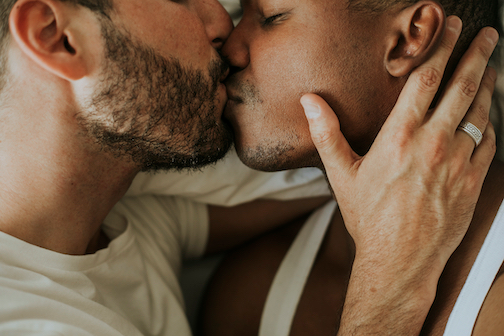Decriminalisation of gay sex on the Cook Islands stalls yet again in devastating blow to queer community

Plans to decriminalise homosexuality in the Cook Islands have been kicked down the road yet again (Envato Elements)
Plans to decriminalise homosexuality have been kicked down the road on the Cook Islands in a devastating blow to the local queer community.
The region, which is self-governing but has a free association arrangement with New Zealand, punishes sex between men with up to seven years in prison.
The Cook Islands parliament was due to hear the results of a report on Wednesday (30 September) looking at potential changes to the country’s Crimes Bill – but the meeting was deferred for three months, according to the Stuff.co.nz.
The deferral means that a potential change to the law, which has been demanded by LGBT+ activists for years, has been kicked down the road once more.
The nation was historically accepting of same-sex relationships but anti-LGBT+ sentiment became commonplace through colonisation.
Activists have been calling for years for sex between men to be decriminalised in the Cook Islands.
In 2017, it finally looked like that might happen when a select committee recommended that the two clauses that criminalise homosexuality be removed from the Crimes Bill.
The committee recommended that sections 154 and 155 of the law, which was introduced in 1969, be scrapped.
Following that report, the Pacific nation’s parliament removed “indecent acts between men” and sodomy from a draft version of the Crimes Bill.
The Cook Islands were set to decriminalise homosexuality – but plans were later scrapped.
However, MPs in the country later backtracked and reinstated the clauses in November 2019 following a sustained pressure campaign from religious groups.
The bill – which also bans bestiality – has been widely condemned by Te Tiare Assocation, the only LGBT+ group on the Cook Islands.
The chairman of the select committee, Tingika Elikana, said in November that they reinstated the clauses in the draft bill after some people in the community raised their “concerns” about the plan to decriminalise homosexuality.
“One of the arguments surrounding it is people are saying there is no one charged with those kind of offences like homosexuality, witchcraft, sodomy and all that,” Elikana said at the time.
“But they say on the other side of the coin, maybe because those provisions are there in the act that’s why nobody is doing it, so they are doing it in the privacy of their homes which is another argument.
“If you remove those provisions then you more or less encourage it to be in the open because now there is no law that says that kind of conduct is prohibited.”
A petition calling on the government to decriminalise homosexuality has been signed by more than 5,000 people.

